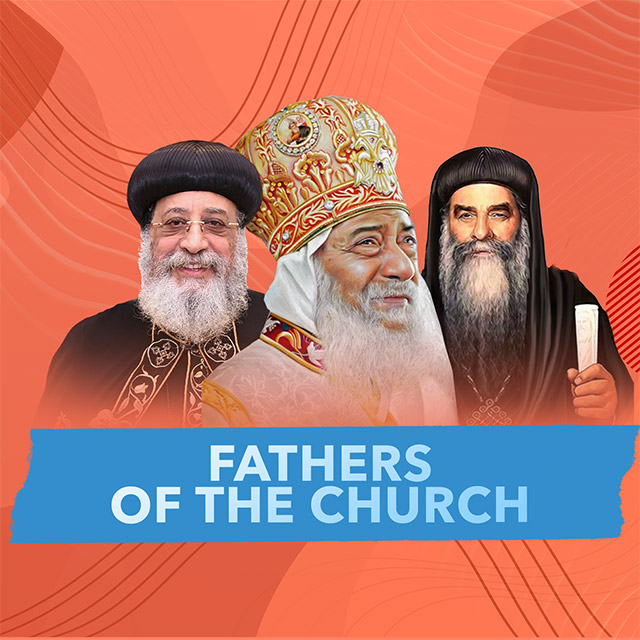Christians around the world believe in one God in three persons: the Father, the Son, and the Holy Spirit. These three persons share a single essence, a single self, yet are distinct in their personal attributes. The divine essence is one, but it possesses three essential or inherent characteristics, so that each person is God in essence, but with a unique attribute in the divine nature. The term “person” (hypostasis) is a Syriac word that literally means “person,” referring to the distinct features or attributes that enable us to identify the uniqueness of each person. A hypostasis is an essential attribute or inherent capability within the divine essence. Through these persons, we come to know God. A human being is recognized by their person, defined by their intellect and spirit, which distinguish them from other creatures. Similarly, the sun comprises a disk, light, and heat. Without any one of these, it would not be called the sun. A flower is recognized by its shape, color, and fragrance; if any aspect is missing, it would not be a flower. Between Essential Attributes and Relational Attributes The essential attributes of the divine nature are three: existence, word, and life. These are inherent in the divine essence and are not acquired; they are the essence of divinity in its radiant glory. Relational attributes, such as mercy and justice, are displayed by God toward His creation and are thus considered relative. Begetting and Procession God conceives a thought, which becomes the Word, just as my own thought becomes a word after I formulate it. But God’s thought differs from ours, as He does not formulate a word and then change it. In God’s mind, thoughts do not begin to die nor die to begin again; everything exists simultaneously. He has one Word, requiring no other. This thought, or Logos, is one in essence with Him. As the Creed expresses, it is the Word of what God is, and the Word is the source of human wisdom, from scientific discoveries in biology, chemistry, and physics to philosophy, theology, and mystical knowledge—all stemming from the Word that is God. Ideas like justice, power, and love are general concepts that exist in the mind yet are invisible because they are spiritual truths. God’s thought is unlimited; it is not merely called the Word but also called the Son because it is begotten and does not come from the external world but is perfectly conceived within His mind. Hence, St. John says, “In the beginning was the Word, and the Word was with God, and the Word was God” (John 1:1-10). Oneness and Trinity Faith in God’s oneness and the Trinity of His persons is a natural belief deeply rooted in the human soul since ancient times. Thus, the soul rejoices when it discovers both oneness and Trinity together, finding satisfaction and fulfillment. The mystery of the Trinity provides an answer to those who imagine God as a solitary, isolated deity, compelled to love only Himself before the beginning of the world. The Trinity manifests a communion of infinite love, and the greatest miracle is that He chose to create the world even while enjoying complete happiness. This world added nothing to God’s perfection; He created it purely out of love. Is God One or Three? He is the one, self-existent God who exists outside of time and is independent of any external power. His existence is necessary in itself, and He possesses within Himself the power of His own being and that of all beings. Therefore, this inherent power or attribute is called the hypostasis of the Father, the source of all existence. The magnitude and splendor of His works reflect His glory. As the psalm says, “The heavens declare the glory of God, and the firmament shows His handiwork.” He is the personal hypostasis of the Logos, the Word, wisdom, knowledge, and power—the hypostasis of the Son. This necessarily existent, self-aware being, complete in knowledge and infinite understanding, is a dynamic, active presence, not static or inert. The capacity for life is an essential attribute in the divine essence, known as the hypostasis of the Holy Spirit. There is more to explore; please pray for my weakness. Note that these topics require concentration, as understanding them helps us to know our God.
Related Knowledge Base Posts
- Why do demons ake control of some people? (4 minutesread)
- How did we receive the Holy Scriptures?, what is the composition of the bible? (1 minuteread)
- How the Old Testament Books Came to Us: (1 minuteread)
- What is the truth behind the Guardian Angel in the Orthodox Church? (2 minutesread)
- What are the main features about the Coptic Calendar of Martyrs? (2 minutesread)
- What is the Church’s ruling on a person who leaves their faith and then returns?* (1 minuteread)
- What are the signs of the second coming? (5 minutesread)
- How did Saint Augustin describe his mother? (1 minuteread)
- What are the various names of God in the Bible? (3 minutesread)
- What are the Seven Sorrows in the Life of the Holy Virgin Mary? (1 minuteread)
- Glory to God, so why do we glorify the Virgin Mary? (2 minutesread)
- Can you give us a brief history of Egypt through the Ages? (3 minutesread)
- What is the meaning of Lighting Candles in the Church? (3 minutesread)
- What happened to those who attacked the Holy Bible, and what happened to their ideas? (2 minutesread)
- What is the Feast of the Transfiguration? (3 minutesread)
- Why were Moses and Elijah with Christ on the Mount of Transfiguration? (2 minutesread)
- Can you explain the creatures mentioned in Chapter 13 of the Book of Revelation? (4 minutesread)
- Is there a conflict between God and Money? (6 minutesread)
- What is the Christianity’s view on Magic? (2 minutesread)
- Why would God allow Satan to tempt him? (2 minutesread)














